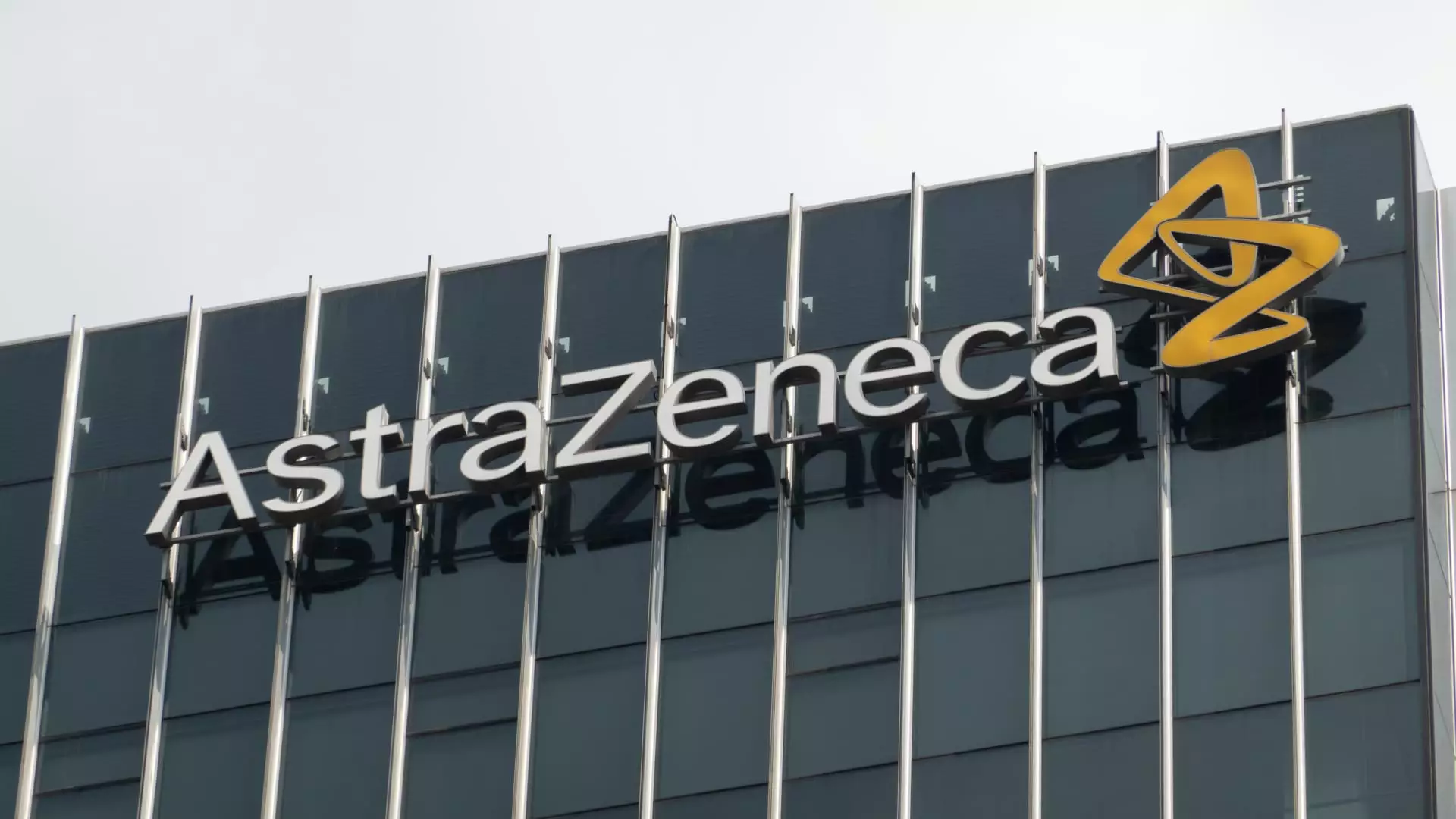In recent months, the ambitious plans of pharmaceutical giants to pour billions into U.S. manufacturing and research initiatives have garnered applause from policymakers and industry insiders alike. AstraZeneca’s pledge of $50 billion underscores a narrative that champions national loyalty and the supposed economic revitalization of America’s biotech sector. Yet, beneath this veneer lies a complex web of strategic self-interest, economic manipulation, and an industry eager to leverage political pressures. The idea that these investments genuinely serve the American public is, at best, questionable and at worst, a calculated public relations stunt designed to reinforce industry dominance under the guise of patriotism.
The industry’s fixation on reshoring production is driven less by altruism and more by the intricate dance of tariffs, trade policies, and economic leverage. Companies like AstraZeneca recognize that U.S. tariffs threaten their global supply chains, prompting an urgent need to establish a foothold on American soil. The promised “tens of thousands of jobs” are appealing on paper but often amount to a calculated rebranding of existing operations or automation-driven efficiencies designed to reduce labor costs rather than elevate workers’ welfare. In essence, these mega-investments are less about bolstering American innovation and more about safeguarding profits amid a shifting political landscape eager to blame foreign trade for any industry downturn.
Investments as Political Shields—But for Whom?
Strategically aligned with U.S. political agendas, these pharmaceutical investments serve as a bargaining chip to avoid crippling tariffs and potential regulatory crackdowns. AstraZeneca, along with other global firms, is attempting to position itself favorably in a political arena increasingly hostile toward reliance on international manufacturing and drug imports. While Biden’s administration emphasizes strengthening domestic supply chains, the reality is that most of these investments—particularly in research and development—are designed to maximize returns on existing assets rather than fostering genuine innovation that benefits the broader public.
The plans to develop a multi-billion-dollar facility in Virginia, emphasizing AI and automation, raise critical questions. Is this truly about advancing healthcare or merely about reducing costs and gaining strategic advantages? The push for high-tech manufacturing, although technologically impressive, risks disconnecting the industry from the essential human element—doctor-patient relationships and equitable access. It’s a strategic move breeding a new kind of vaccine—one that is more about data-driven manipulation than human-centered medicine.
Moreover, the focus on U.S. revenue as the primary growth driver underscores the industry’s prioritization of shareholder value over public health. AstraZeneca’s aim to reach $80 billion annually, with half of that from the U.S., is a testament to its dispassionate pursuit of financial dominance rather than societal good. These investments essentially serve as a hedge against political turmoil and regulatory flux, ensuring corporations remain indispensable stakeholders in American health policy.
The Broader Implications: Market Dominance or Ethical Collapse?
What emerges from AstraZeneca’s aggressive expansion is a clear message: the pharmaceutical landscape is less about healing and more about consolidating power. While critics point out that such megaprojects could stimulate economic activity, the underlying motives remain suspect. These investments primarily secure a competitive edge that can suppress innovation from smaller, more ethical players who are less inclined to kowtow to industry giants’ profit motives.
Moreover, the ongoing trade and tariff debates reveal a troubling shift towards protectionism cloaked in the language of national interest. Despite the rhetoric of “building a resilient supply chain,” these moves seem more aligned with shielding multinational profits from external competition than genuinely safeguarding public health. The industry’s readiness to threaten drastic tariffs and market reconfigurations reveals their view of American health policy as a transactional space—one that can be leveraged and manipulated rather than genuinely reformed for the common good.
In this light, AstraZeneca’s monumental investment strategy appears less a patriotic act and more a calculated power play designed to cement its global empire at a time when the social contract between corporations and citizens is already fraying. The promise of job creation and technological innovation rings hollow when viewed through a critical lens that recognizes these moves as part of a broader strategy to maintain market dominance amid geopolitical uncertainty and regulatory challenges. The challenge for American policymakers and society is to discern whether these investments truly serve public interests or are merely sophisticated tactics to perpetuate corporate imperialism under the guise of national renewal.


Leave a Reply